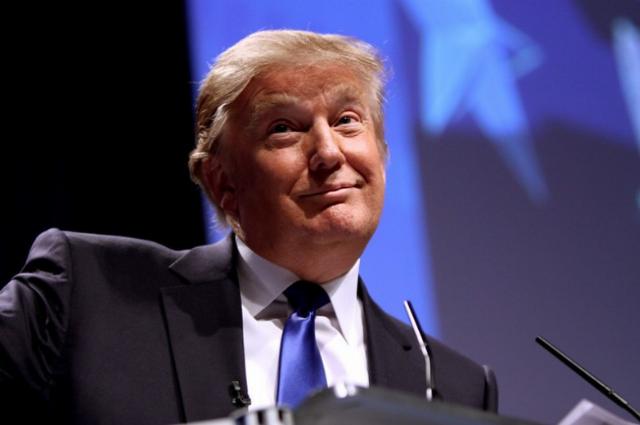
The Democrats’ last good chance of keeping the White House, aside from trying to steal the election outright, is to quickly take Donald Trump to trial after the Supreme Court hands down its decision in the presidential immunity case, insofar as a guilty verdict is virtually a given. (The jury will be selected from a jury pool in a place that’s about 95% Democrat.) The hope of Democrats is that a guilty verdict in a criminal case involving Jan. 6 will turn off enough voters to keep Trump from winning the election. They aren’t guaranteed satisfaction, but many agree that it’s their best chance of winning the presidency.
Oral argument in the case will be on April 25. The Court could conceivably hand down its decision within a week or two afterward but will most likely hand it down no earlier than mid-June. That might or might not be enough time for a quick trial before the election, but it likely won’t be enough time for an appeal of the trial verdict, however expedited. That’s integral to the Democrats’ plan: a D.C. jury is almost guaranteed to be biased against Trump.
The formal issue in the case is the extent of a president’s (or ex-president’s) immunity in criminal cases. SCOTUS presented the question as “Whether and if so to what extent does a former President enjoy presidential immunity from criminal prosecution for conduct alleged to involve official acts during his tenure in office.” That issue has never been considered by the Supreme Court. What, then, is the crime of which Trump is supposed to be guilty? It’s the crime of acting in a practicable way on his belief that the election was stolen (or may well have been stolen). It’s a reasonable belief. No rational decision can be made about immunity for the crime of obstruction without the appellate judges having a definite, and defensible, view of whether or not it’s unreasonable to believe that the 2020 election was stolen.
Earlier articles have explained why the “Unreasonableness View” must be rejected. Trump’s opponents should take the view that it’s mistaken albeit reasonable to believe that the election was stolen, or else be guilty of question-begging. The curious fact is that nearly all, if not uniformly all, of Trump’s opponents embrace the unreasonableness position. That turns out to be their Achilles heel. (See “Jack Smith’s Impossible Task.”)
Though it’s not directly part of the formal issue presented in the immunity case, SCOTUS can’t easily ignore the question-begging of the unreasonableness position, and the implications of that question-begging for the outcome. True, the Court need not explicitly talk about the unreasonableness position and its epistemological travails. But Trump’s actions up to January 6 cannot be made sense of without keeping it firmly in mind. If it’s reasonable to believe that the election was stolen, then surely Trump was not doing anything wrong. On the contrary, he was trying to preserve the rule of law in elections. If things happened to get ugly on Jan. 6, look to see where the fault really lies. Maybe with those who were, perhaps, trying to steal an election?
Trump wanted to send 10,000 National Guardsmen to the Capitol on Jan. 6, but that was nixed by D.C. mayor Muriel Bowser and Speaker Nancy Pelosi. This fact alone ought to give Trump immunity for “obstruction” even if it were unreasonable to believe that the election was stolen. Even more does it entail immunity — effectively non-culpability — for obstruction, or for interference with an official proceeding, or for defrauding the United States, insofar as it’s reasonable to believe that the election was stolen. (And it is; see the books by Mollie Hemingway and Joe Fried.)
Presidential immunity is necessarily shaped by whether the actions the president undertakes follow from a plausible conception of the president’s duties, and a plausible conception of those duties must, in this particular case, be framed in terms of whether or not it’s reasonable to believe that the 2020 election was stolen. Not all of a president’s duties are enumerated in the Constitution, nor is every duty necessarily implied. (War Powers, anyone?) Something like a plausible-conception thesis is therefore arguably needed for a correct description of presidential duties, and for whatever degree of immunity covers those duties. In light of that, the question of the reasonableness or unreasonableness of believing that the election was stolen is integral to the immunity case.
If Trump had a reasonable belief that the election was stolen — even if that belief turned out to be mistaken — he deserves immunity from all Jan. 6–related charges. And certainly, he cannot be fairly, or even coherently, convicted of such charges at trial.
Note, by the way, that free speech generally includes unreasonable beliefs in its ambit. Free speech is thus by far the weaker argument in defense of Trump’s Jan. 6-related actions — unless, of course, Trump’s or anyone else’s belief that the election was stolen is in fact unreasonable. A free speech defense might imply that Trump’s belief in a stolen election was unreasonable. There’s a danger that independents and other swing voters might conclude precisely that and, blaming Trump for having such an “unreasonable” belief, decline to vote for him even if the free speech defense saves him from conviction in connection with the Jan. 6 events.
After the Court hands down its decision, Jack Smith will promptly urge a trial in the summer, concluding shortly before the election. Such a trial cannot possibly be fair to Trump if Smith or the jury is allowed to operate on the basis of the unjustified assumption that it’s unreasonable to believe that the 2020 election was stolen. The immunity case will be important because it can be expected to develop fundamentally new constitutional doctrine, as the first Supreme Court decision touching on a president’s criminal immunity. The Court will effectively be shaping criminal immunity for the presidency for a long time to come. So it’s all the more noteworthy that the reasonableness of Trump’s belief that the election was stolen is part of the warp and woof of that case.
The “plausible conception” thesis, or something like it, is needed. Yes, such a standard will be good for Trump because it inevitably brings into play the reasonableness or unreasonableness of the belief that the election was stolen, which Democrats (and the government) have been hell-bent on leaving unexamined. But such a standard will also be good for constitutional law and principled adjudication.
Trump recently declared, in a vernacular that Mark Twain might have envied, “When you think of the fake things, nobody has been treated like Trump, in terms of badly.” Fact check: true. But it’s also America that Democrats are treating badly. Let SCOTUS and the voters together expose the Democrats’ mindless and dangerous chicanery and destroy it.
<img alt="CC BY-SA 2.0: creativecommons.org/licenses/by-sa/2.0/legalcode" captext="Gage Skidmore” height=”399″ src=”https://conservativenewsbriefing.com/wp-content/uploads/2024/03/thinking-of-the-fake-things.jpg” width=”600″>
Image: Gage Skidmore via Flickr, CC BY-SA 2.0.




